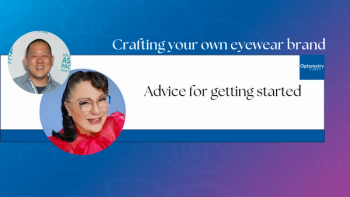
You need a practice Web site
As Facebook continues to soar past one billion users and expand its geographic reach, practice owners might consider pulling the plug on their Web site in favor of having Facebook as their sole representation in the digital space.
As Facebook continues to soar past one billion users and expand its geographic reach, practice owners might consider pulling the plug on their Web site in favor of having Facebook as their sole representation in the digital space.
However, contrary to some other opinions and Facebook’s volume of usage, pulling the plug on your Web site would be a grave marketing mistake. There are various facets to what exactly a Facebook page is and how it should function for a practice, but as we will see, a Facebook page cannot be the be-all and end-all-yet.
Take a gander at the Web sites of some of the largest companies in the world. Be sure to stop by the sites of top-tier brands such as Coca-Cola, Apple, and Nike. The first thing you’ll notice is that they all have Web sites, and not just any Web site. These leading international businesses use the most advanced forms of programming which encompass the sharpest resolutions, most vibrant colors, and movement have all created a pristine user experience. Meanwhile, all of these companies will make it as simple as can be to access the company’s Facebook page directly from their Web site, except for Apple, because Apple doesn’t have a way to access its Facebook page from its Web site, nor does it have a corporate Facebook page that is regularly updated. This reality showcases the Web site/Facebook duality. The world’s most successful businesses, with the most recognizable brands who, by the way, employ the most innovative and effective marketing teams on Earth, clearly are subscribers to the dual Web site/Facebook presence (aside from Apple). The reason for this is because a Web site and a Facebook page seek to solve two different problems and accomplish entirely different goals.
A Web site is the first place an interested customer or a searching customer will go to experience the desired product or service. Very few Web sites look alike, or at least Web sites shouldn't look alike because a Web site is the most pliable way for a practice or business to express its look and feel into the virtual arena. You will not see Coca-Cola look like it does on its Web site anywhere else on the Internet, certainly not on Facebook. The way a Web site looks should be what a business or product looks in its essential form-the business’s smiles, colors, its people, its movement, its edges, and its lines. No other medium gives a business or product this degree of expressiveness. That’s exactly why the Web site maintains a quintessential role in forming the customer’s perception of you and what you provide-the Web site grants the visitor a view that allows for reviewing a business that cannot be gathered from any other online source.
The Facebook page is a place where a customer or prospective customer can perceive inflections of the company’s or product’s personality but cannot perceive or define the business or product itself. The Facebook page is auxiliary to the Web site. Inflections are those traits that might help determine the quality of a business or the immediacy of action a customer may take. This is readily apparent as, outside of the content, all Facebook pages look identical in structure and presentation-in its form and layout, a given business page or personal page is essentially identical to every other business and personal page out there. If Facebook were to allow users to customize the elements of their pages, such as layout, color scheme, or number of pages, it would essentially become Google. Instead of having a Web site on Google, we would have a Web site on Facebook. Facebook would become a place that people could go to see the differences in what companies have to offer; it would be a place where people would come to find and to see what businesses out there can meet their needs.
As we see, Facebook is not Google. What people look for on Google is the nature of a business, the soul of a business, while Facebook provides a different service, one where we come to know some of that company’s nuance and flavor. This helps us understand why Apple doesn’t have an active Facebook page. Apple’s voice, Apple’s soul come through so clearly on its Web site. When you couple this with the unprecedented brand allegiance Apple has inspired, there is absolutely nothing it needs to supplement, solve or create with a Facebook page. Everything Apple’s brand stands for is known by its customer base and is readily apparent to a prospective customer by exploring its Web site. Until Facebook becomes Google, Apple has no need for Facebook.
For companies that don’t have Apple’s level of brand loyalty, Facebook is a way to level the playing field, tip the scales in your favor over your competitor. Maybe it’s some type of community-based campaign, cute pictures of your youngest patients, or your upcoming trunk show-whatever. Your presence on Facebook could be a powerful tool in influencing a prospective patient or customer to act now rather than later or with the practice down the street. The facts remain, although Facebook can be our ally, who we are and what we provide is in large part disclosed by what our Web site says about us. Until Facebook can become a medium that showcases the voice and soul of a business like a Web site can, shutting down your Web site would be like hiding the identity and presence of your practice from the sight of thousands of pairs of eyes.ODT
Newsletter
Want more insights like this? Subscribe to Optometry Times and get clinical pearls and practice tips delivered straight to your inbox.













































